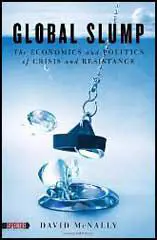Spartacus Review
Volume 53: 28th April, 2011
Modern Politics

Title: The Politics of Genocide
Author: Edward S. Herman and David Peterson
Editor:
Publisher: Monthly Review Press
Price: £10.95
Bookshop: Amazon
Spartacus Website: Political Websites
Category:
In this impressive book, Edward S. Herman and David Peterson examine the uses and abuses of the word “genocide.” They argue persuasively that the label is highly politicized and that in the United States it is used by the government, journalists, and academics to brand as evil those nations and political movements that in one way or another interfere with the imperial interests of U.S. capitalism. Thus the word “genocide” is seldom applied when the perpetrators are U.S. allies (or even the United States itself), while it is used almost indiscriminately when murders are committed or are alleged to have been committed by enemies of the United States and U.S. business interests. One set of rules applies to cases such as U.S. aggression in Vietnam, Israeli oppression of Palestinians, Indonesian slaughter of so-called communists and the people of East Timor, U.S. bombings in Serbia and Kosovo, the U.S. war of “liberation” in Iraq, and mass murders committed by U.S. allies in Rwanda and the Republic of Congo. Another set applies to cases such as Serbian aggression in Kosovo and Bosnia, killings carried out by U.S. enemies in Rwanda and Darfur, Saddam Hussein, any and all actions by Iran, and a host of others.

Title: The Global Slump
Author: David McNally
Editor:
Publisher: Merlin Press
Price: £11.99
Bookshop: Amazon
Spartacus Website: Political Websites
Category:
Analyses the global financial crisis as the first systematic crisis of the neo-liberal stage of captialism and argues that far from having ended, the crisis has ushered in a new period of worldwide economic and political turbulence. Taking crisis as a fundamental feature of capitalism, it challenges the common view that its source lies in financial deregulation. Whilst averting a complete meltdown, the intervention by central banks laid the basis for recurring crises for poor and working class people. McNally also traces the new patterns in anti-capitalist action.
